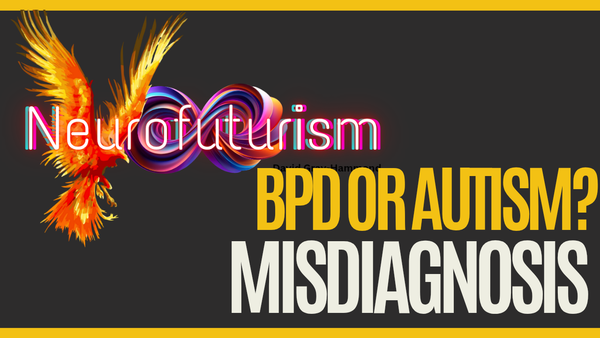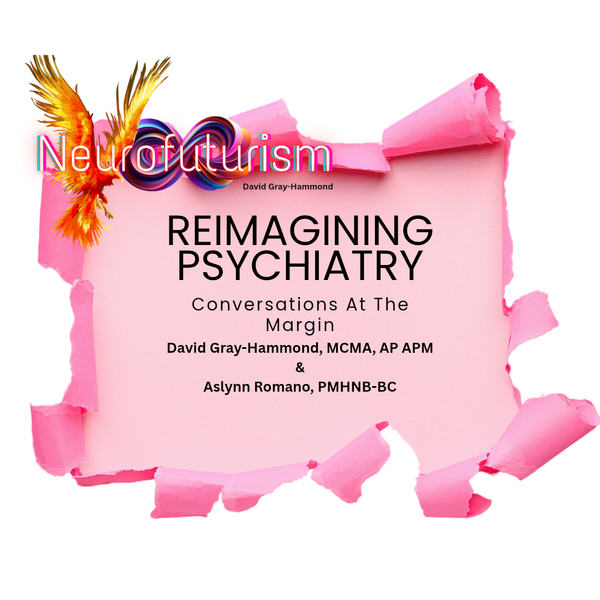Redefining Neurodivergence Beyond Words: The Bodymind Knows
Connecting With Our Neurodivergence As Sensation Rather Than Description

For too long, neurodivergence has been forced into the narrow corridors of language. We are asked to define ourselves through checklists, diagnostic interviews, self-reports, and medicalised descriptions. The expectation is that our reality must be translated into words, preferably neat, clinical ones, before it can be recognised as valid.
But what happens when words fail us?
Language is only one way of knowing, and it is not a neutral one. Words carry cultural baggage, hierarchies of meaning, and assumptions about what counts as “normal”. They are shaped by neuronormative systems that already struggle to hold space for neurodivergent experience. When neurodivergence is confined to verbal definition, it is flattened, distorted, and often pathologised.
If we are to truly understand neurodivergence, we need to look beyond words. We need to return to the bodymind.
Neurodivergence in the Bodymind
Neurodivergence is not just something we describe, it is something we feel. It lives in our sensory systems, our nervous systems, our guts, our muscles, and our interoceptive awareness.
The concept of the bodymind reminds us that body and mind are not separate. They are one dynamic system, constantly shaping and reshaping each other. To be neurodivergent is to have a bodymind that processes, perceives, and moves through the world queerly.
An Autistic shutdown is not only a thought; it is the weight in the chest, the deep pull toward silence.
ADHD is not only distractibility; it is the restless hum in the muscles, the buzzing energy that cannot be neatly confined to stillness.
Psychosis is not only delusional thought; it is the electric charge of the nervous system, the visceral reality of altered perception.
All are states of being that transcend identity and language.
These are not metaphors. They are truths of lived experience that resist reduction to diagnostic vocabulary.
The Interoceptive Sense
Interoception, the sense of our internal bodily states, offers us a key to understanding neurodivergence beyond language.
When we tune into interoception, we connect with our heartbeat, breath, stomach tension, and hormonal rhythms. We become aware of how emotions show up as embodied events; anxiety as tightness in the throat, joy as warmth spreading through the chest, overwhelm as nausea.
For neurodivergent people, interoception often feels different. Some of us experience heightened awareness, sensing every flicker of our heartbeat and shift in our digestive rhythm. Others feel muted signals, struggling to notice hunger until we crash or recognise stress until it becomes unbearable.
This diversity of interoceptive experience is itself part of neurodivergence. It reminds us that our ways of being are not only cognitive but deeply embodied.
Beyond Defining, Toward Feeling
To redefine neurodivergence through interoception is to reclaim it from the confines of verbal description. It is to say:
“Our experience is real, even when we cannot put it into words.”
This has radical implications. It means that:
- Neurodivergent identity is not reducible to diagnostic categories.
- Support must attend to sensory and interoceptive needs, not just behavioural ones.
- We need practices of self-connection, breathwork, movement, grounding, and rest, that honour the bodymind as a site of knowledge.
- Lived experience is valid even when it is felt more than it is said.
Neurodivergence as Sensory, Relational, and Political
Language will always have its limits. Words can connect us, but they can also betray us. By returning to the interoceptive bodymind, we find a form of knowing that does not require translation into someone else’s terms.
This is not only personal but political. The insistence on linguistic definition has always been a gatekeeping strategy. It keeps services, recognition, and legitimacy tethered to the ability to articulate one’s experience in acceptable terms.
By insisting that neurodivergence can also be known through the bodymind, we open up possibilities for those who are non-speaking, those who experience alexithymia, and those who live in the untranslatable spaces between sensation and language.
To redefine neurodivergence through interoception is to shift the centre of gravity from explanation to presence. From description to embodiment. From translation to connection.
This Substack is reader-supported. To continue reading this article, please consider becoming a free paid subscriber.


